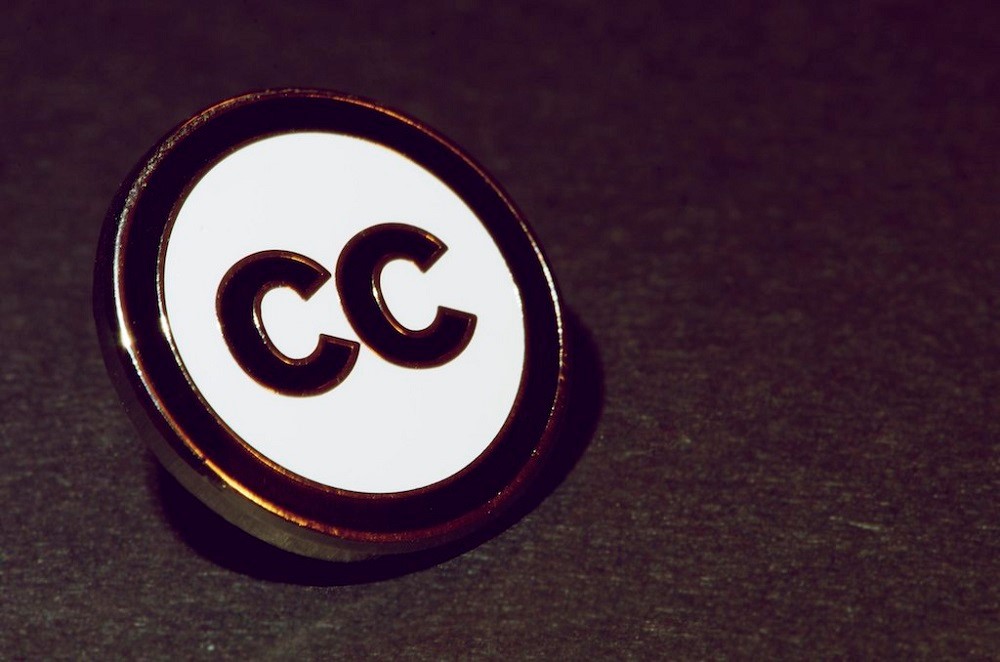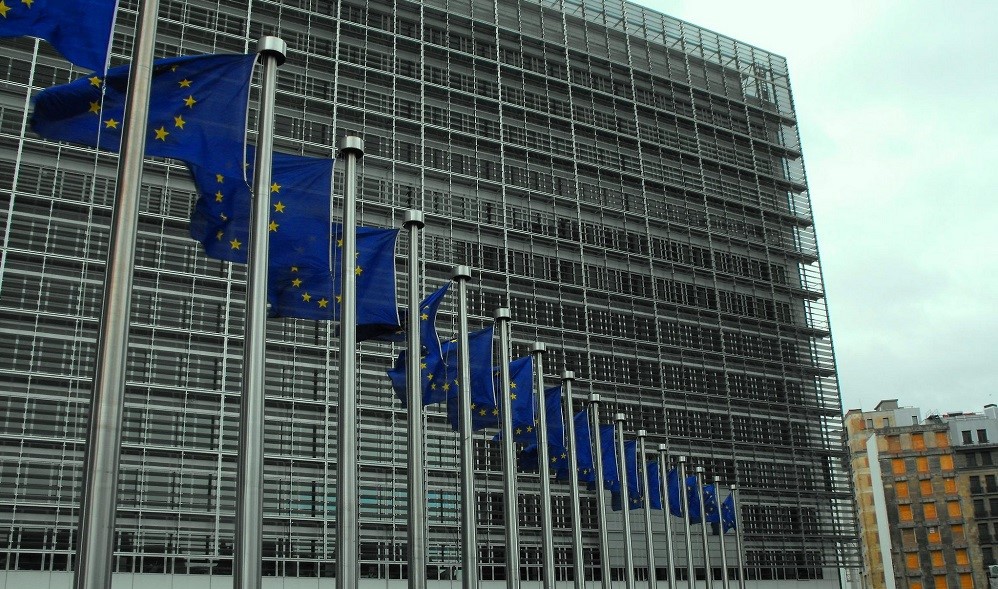The European Union has approved a new copyright directive - how will it affect the Internet
In one of our materials we said that the European Parliament is considering a new directive aimed at tightening the rules for distributing content on the Internet. And last week the final version of this document was approved .
Let us tell you how the directive, which has already been dubbed the “ killer of memes ”, will affect the operation of news sites, social networks and simple Internet users.

/ photo Kristina Alexanderson CC
Work on the new directive began several years ago. Its purpose was to replace the law adopted in 2004, since from that moment on the world practices and approaches to the distribution of content have changed. The new law should limit the possibilities of large online platforms (like YouTube and music streaming services) and help content creators protect their intellectual property rights.
The most significant in the document are two articles - number 11 and 13. The community gave them the following unofficial names: “link tax” and “download filter”, respectively.
Article 11 obligessocial networks, news aggregators and so on to ask permission to distribute news content from the owners of the publication. As for article 13, it obliges content platforms to check all materials uploaded by users and filter content that violates any copyright.
In the original version, the draft directive caused a lot of disagreement and was rejected in the first reading in July. Therefore, the authors of the draft amended articles 11 and 13 to revisiting directives last week. In this form, the law was approved by the European Parliament.
Now the law does not affect the operation of online encyclopedias, services for hosting open source code and marketplaces ( p. 10 of the document ).
Article 11 will not apply to users who use content for personal or non-commercial purposes.
The amendment states that online publications will be able to use information from other articles without citing the source material. The second edition allows the use of hyperlinks to third-party texts. However, quotations of excerpts still need to be coordinated with the publication in which the material was published.
As for article 13, its old version called for the introduction of automatic recognition services of unlicensed content. The new version of the document removed this wording. The directive now invites EU member states to independently determine how best to regulate user-downloadable content (page 31 of the document).
The first version of the copyright directive was written as a law that would “ ban memes ”. In the new version, the authors clarified that non-commercial use of content is not subject to the law.
However, the directive does not define where this boundary lies between personal and commercial use of content. Therefore, bloggers or popular social network users with a large number of subscribers may be at risk .
Article 11 will limit the ability of publications to cite other materials. Without the permission of the publisher of the original text, the media will be able to publish only a link to it or individual words.
The directive will also oblige news aggregators to negotiate online collaboration resources. The implementation of this rule will depend on the specific country, but such laws have already been passed in the past by a number of European states and have proven to be ineffective.
In 2014, Spain ordered news platforms to pay publications for posting links to materials. As a result, Google News was closed in the country, and traffic to news sites fell by 15%.
According to Article 13, online services will be responsible for all content posted by users. This item has caused even more controversy among the IT community. A number of deputies of the European Parliament believes that Article 13 will limit the development of start-ups and hinder the work of independent content creators.
Representatives of the non-governmental organization Liberties say that, in essence, the rules still oblige the platforms to implement automatic content filters. Although the point about the need to introduce such systems was removed from the directive's text, the services have no other opportunity to track all the downloadable information. And here another problem arises - such algorithms are often mistaken.
Music professor Ulrich Kaiser (Ulrich Kaiser) conductedAn experiment with a YouTube system called Content ID, which tracks the use of unlicensed music in videos. The Kaiser downloaded public-music videos — these were works by composers who died more than 70 years ago. Nevertheless, the system many times reported copyright infringement.
At the same time, Content ID is one of the most expensive content recognition systems. Its creation cost Google $ 60 million and 50 thousand man-hours. At the same time, there is a situation when holders of related rights to perform those works that have become public property have the opportunity to cast aside or monetize other people's videos with a similar work (but in a different version).
Developing a download filtering tool will be a challenge for large companies, especially for image publishing and social networking services like Pinterest, Tumblr or Instagram. This will require not only a technical solution, but also royalties for millions of photos. The PetaPixel publication believes that such demands may lead to the closure of social platforms in Europe.

/ photo by Leon Yaakov CC
The authors of the document say that the new law will affect only large companies and will not limit the dissemination of information on the Internet. But much will depend on the implementation of the rules in specific countries, because the laws of individual countries will have a serious impact on the operation of online services.
The next stage of the directive’s “development” is a closed discussion of the project with representatives of EU countries and the European Council. Then the document will once again be considered in the European Parliament, where they will make the final decision. Voting will take place in early 2019.
PS What else do we write in our IaaS blog:
Let us tell you how the directive, which has already been dubbed the “ killer of memes ”, will affect the operation of news sites, social networks and simple Internet users.

/ photo Kristina Alexanderson CC
About the content of the directive
Work on the new directive began several years ago. Its purpose was to replace the law adopted in 2004, since from that moment on the world practices and approaches to the distribution of content have changed. The new law should limit the possibilities of large online platforms (like YouTube and music streaming services) and help content creators protect their intellectual property rights.
The most significant in the document are two articles - number 11 and 13. The community gave them the following unofficial names: “link tax” and “download filter”, respectively.
Article 11 obligessocial networks, news aggregators and so on to ask permission to distribute news content from the owners of the publication. As for article 13, it obliges content platforms to check all materials uploaded by users and filter content that violates any copyright.
In the original version, the draft directive caused a lot of disagreement and was rejected in the first reading in July. Therefore, the authors of the draft amended articles 11 and 13 to revisiting directives last week. In this form, the law was approved by the European Parliament.
What have changed
Now the law does not affect the operation of online encyclopedias, services for hosting open source code and marketplaces ( p. 10 of the document ).
Article 11 will not apply to users who use content for personal or non-commercial purposes.
The amendment states that online publications will be able to use information from other articles without citing the source material. The second edition allows the use of hyperlinks to third-party texts. However, quotations of excerpts still need to be coordinated with the publication in which the material was published.
As for article 13, its old version called for the introduction of automatic recognition services of unlicensed content. The new version of the document removed this wording. The directive now invites EU member states to independently determine how best to regulate user-downloadable content (page 31 of the document).
How and to whom the directive will affect
Internet users
The first version of the copyright directive was written as a law that would “ ban memes ”. In the new version, the authors clarified that non-commercial use of content is not subject to the law.
However, the directive does not define where this boundary lies between personal and commercial use of content. Therefore, bloggers or popular social network users with a large number of subscribers may be at risk .
News publications
Article 11 will limit the ability of publications to cite other materials. Without the permission of the publisher of the original text, the media will be able to publish only a link to it or individual words.
The directive will also oblige news aggregators to negotiate online collaboration resources. The implementation of this rule will depend on the specific country, but such laws have already been passed in the past by a number of European states and have proven to be ineffective.
In 2014, Spain ordered news platforms to pay publications for posting links to materials. As a result, Google News was closed in the country, and traffic to news sites fell by 15%.
Content platforms
According to Article 13, online services will be responsible for all content posted by users. This item has caused even more controversy among the IT community. A number of deputies of the European Parliament believes that Article 13 will limit the development of start-ups and hinder the work of independent content creators.
Representatives of the non-governmental organization Liberties say that, in essence, the rules still oblige the platforms to implement automatic content filters. Although the point about the need to introduce such systems was removed from the directive's text, the services have no other opportunity to track all the downloadable information. And here another problem arises - such algorithms are often mistaken.
Music professor Ulrich Kaiser (Ulrich Kaiser) conductedAn experiment with a YouTube system called Content ID, which tracks the use of unlicensed music in videos. The Kaiser downloaded public-music videos — these were works by composers who died more than 70 years ago. Nevertheless, the system many times reported copyright infringement.
At the same time, Content ID is one of the most expensive content recognition systems. Its creation cost Google $ 60 million and 50 thousand man-hours. At the same time, there is a situation when holders of related rights to perform those works that have become public property have the opportunity to cast aside or monetize other people's videos with a similar work (but in a different version).
Developing a download filtering tool will be a challenge for large companies, especially for image publishing and social networking services like Pinterest, Tumblr or Instagram. This will require not only a technical solution, but also royalties for millions of photos. The PetaPixel publication believes that such demands may lead to the closure of social platforms in Europe.

/ photo by Leon Yaakov CC
Further developments
The authors of the document say that the new law will affect only large companies and will not limit the dissemination of information on the Internet. But much will depend on the implementation of the rules in specific countries, because the laws of individual countries will have a serious impact on the operation of online services.
The next stage of the directive’s “development” is a closed discussion of the project with representatives of EU countries and the European Council. Then the document will once again be considered in the European Parliament, where they will make the final decision. Voting will take place in early 2019.
PS What else do we write in our IaaS blog:
